Moldova takes difficult step on path to joining EU
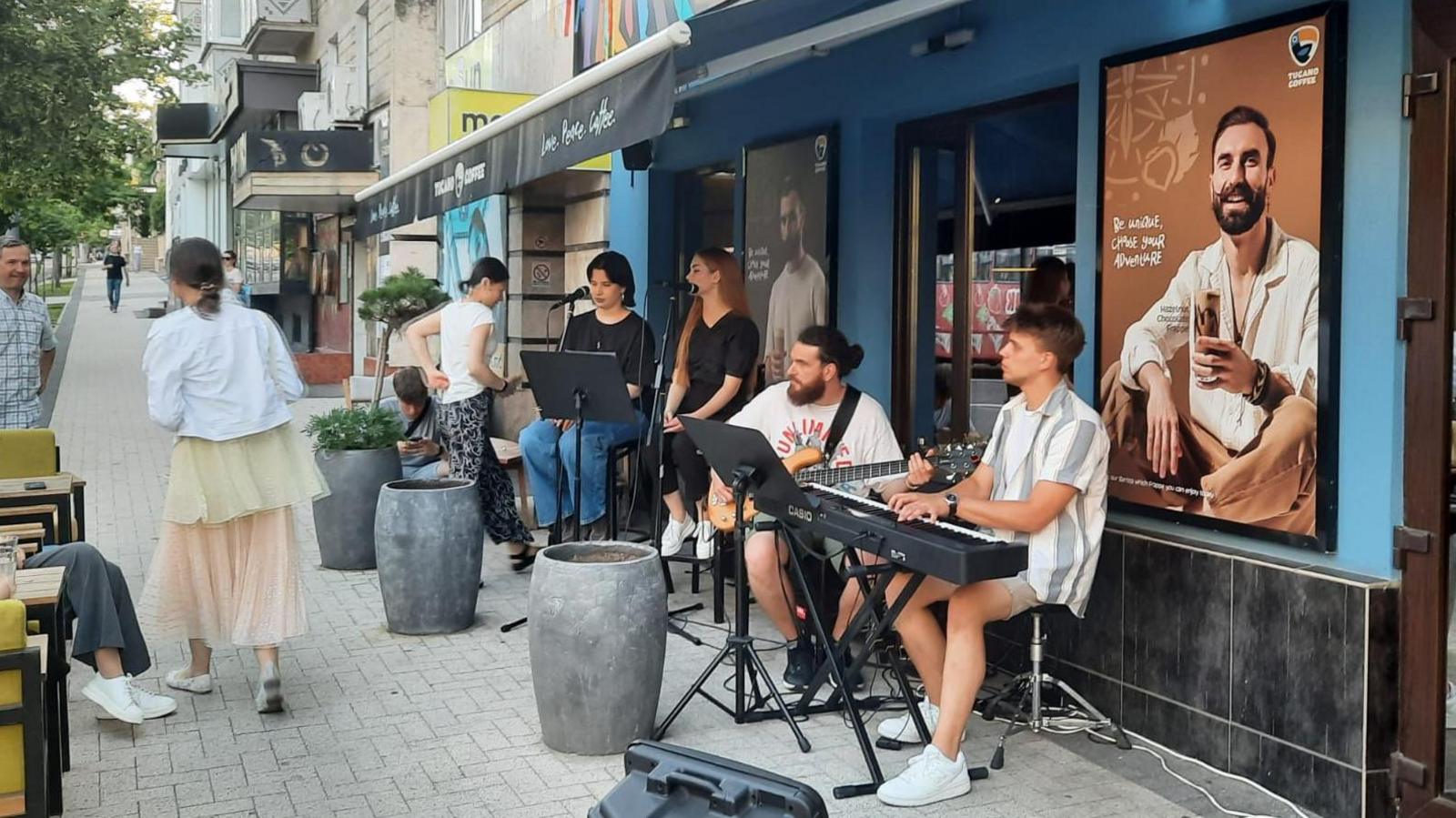
Chisinau has the feel of a European capital, but not all Moldovans want to move away from Russia
- Published
For Moldova as much as Ukraine, Tuesday 25 June will be a momentous day, when the European Union embarks on years of talks aimed at bringing in the two countries as new members.
Moldovan President Maia Sandu, a prime mover in the European direction, has set 2030 as a target to join the EU, but her country faces a long and arduous journey towards membership.
Chisinau has the feel of a European city. Young musicians sing Whitney Houston's "I wanna dance with somebody" outside a trendy restaurant as Moldovans pass by. But the city's buildings remind you of its Tsarist, Romanian and Soviet past as much as its vibrant present.
Moldova's population of 2.6 million is tiny in European terms, and one in five people live in the capital.
But Maia Sandu has a high standing among EU leaders, not least for her fluency in English and French. She travels to EU summits in economy class and dresses in jeans and trainers.
You would be hard-pressed to find anyone who does not believe their move towards the EU is linked to the war in neighbouring Ukraine.
One of Europe's poorest countries, Moldova sits between Ukraine and Romania. It is plagued by corruption and gets by largely from remittances sent by its large diaspora across the EU.
And that link with the rest of Europe is significant, notwithstanding Russia's efforts to discredit it.
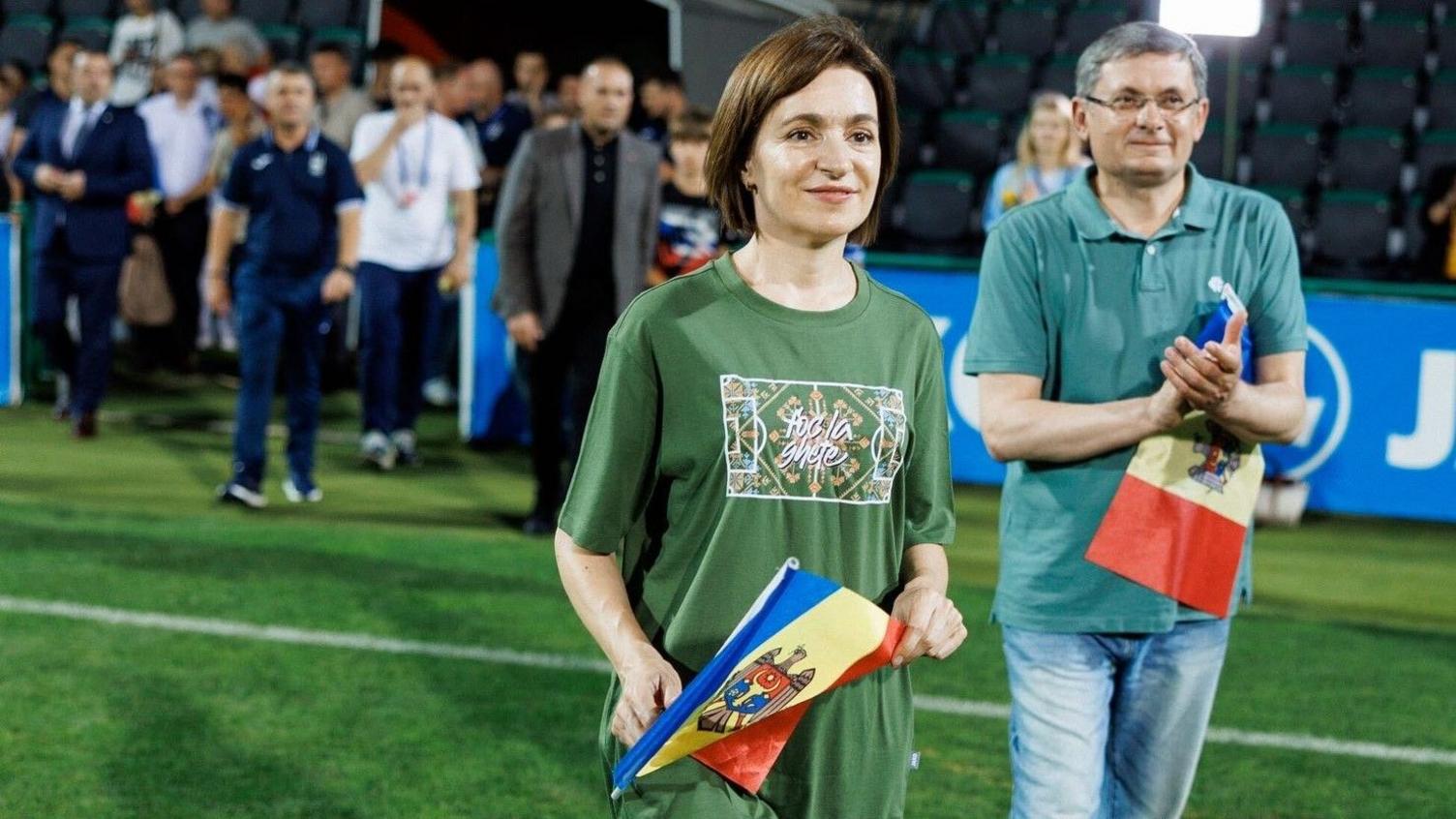
President Maia Sandu posted this picture earlier this month when Moldova's footballers played Ukraine in Chisinau
When President Sandu signed a decree last week on EU accession talks, she spoke of Moldova becoming part of a "stronger, united Europe".
But the Kremlin pointed out that while Moldova was a sovereign state, its "future interests" should also be linked to Russian markets and the "integration processes" of former Soviet territory.
Despite its Romanian-speaking majority, Moldova is a former Soviet republic and much of its eastern fringe is home to a pro-Moscow breakaway region called Transnistria. When Russia launched its full-scale invasion of Ukraine, within days Kyiv closed the 452km (280-mile) border it shares with Transnistria.
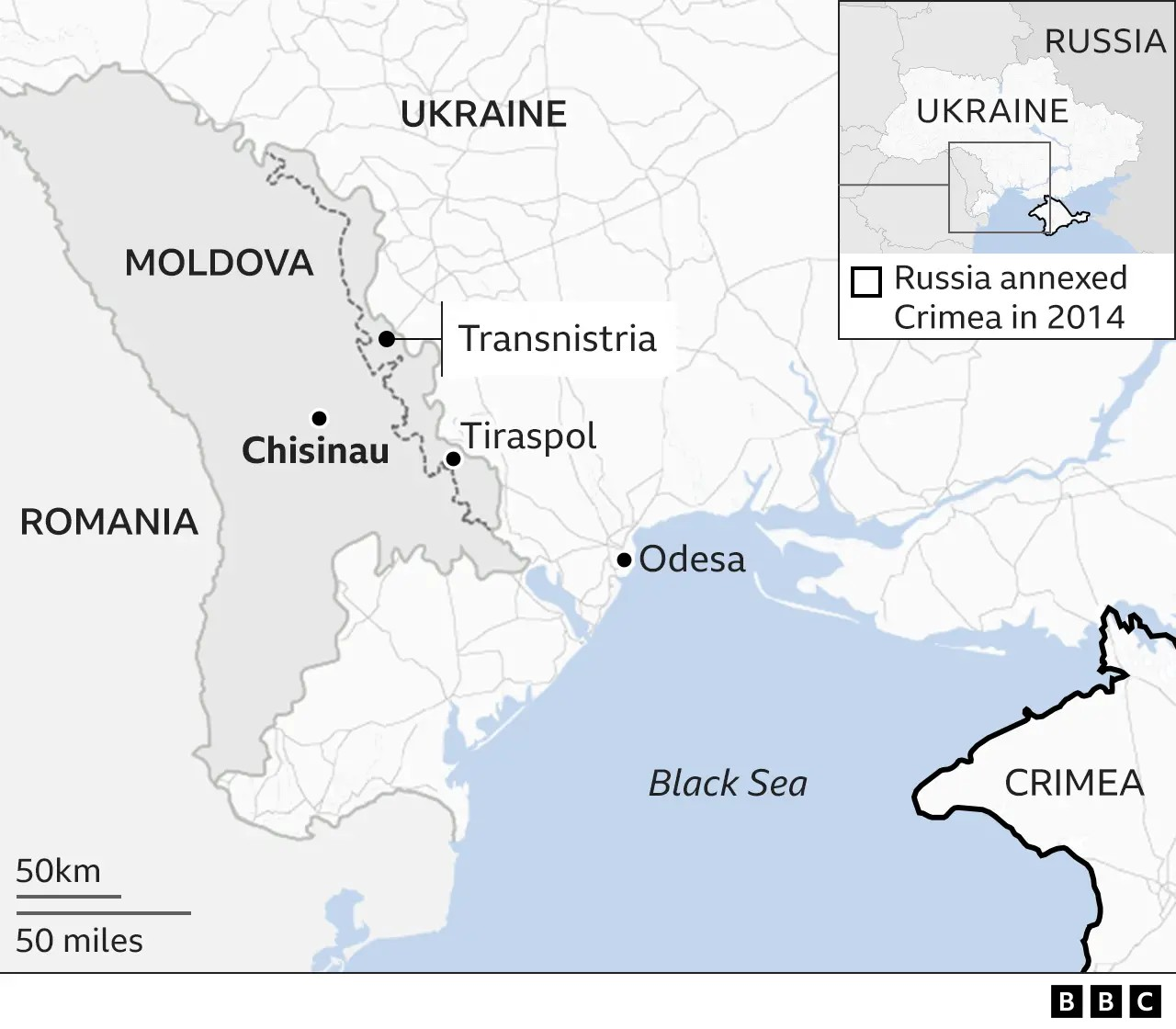
Russian troops have never left since the disintegration of the USSR, and the region is a reminder of Moscow’s long arm in its former republics.
As she signed last week's decree, President Sandu will have had half an eye on two big votes in October. Not only does she aim to be re-elected in presidential elections, but a referendum is taking place on enshrining their country’s path to EU membership in the constitution.
Her country is divided into pro and anti-EU camps and its biggest obstacle is Transnistria.
This problem cannot be sorted overnight, admits pro-government MP, Oazu Nantoi, but now that the Ukrainian border is closed, he is optimistic.
“We have leverage to put pressure on this separatist regime," he told the BBC. "Joint Moldovan-Ukrainian customs controls are carried out at the Cuciurgan border crossing point, so Transnistria has become an enclave."
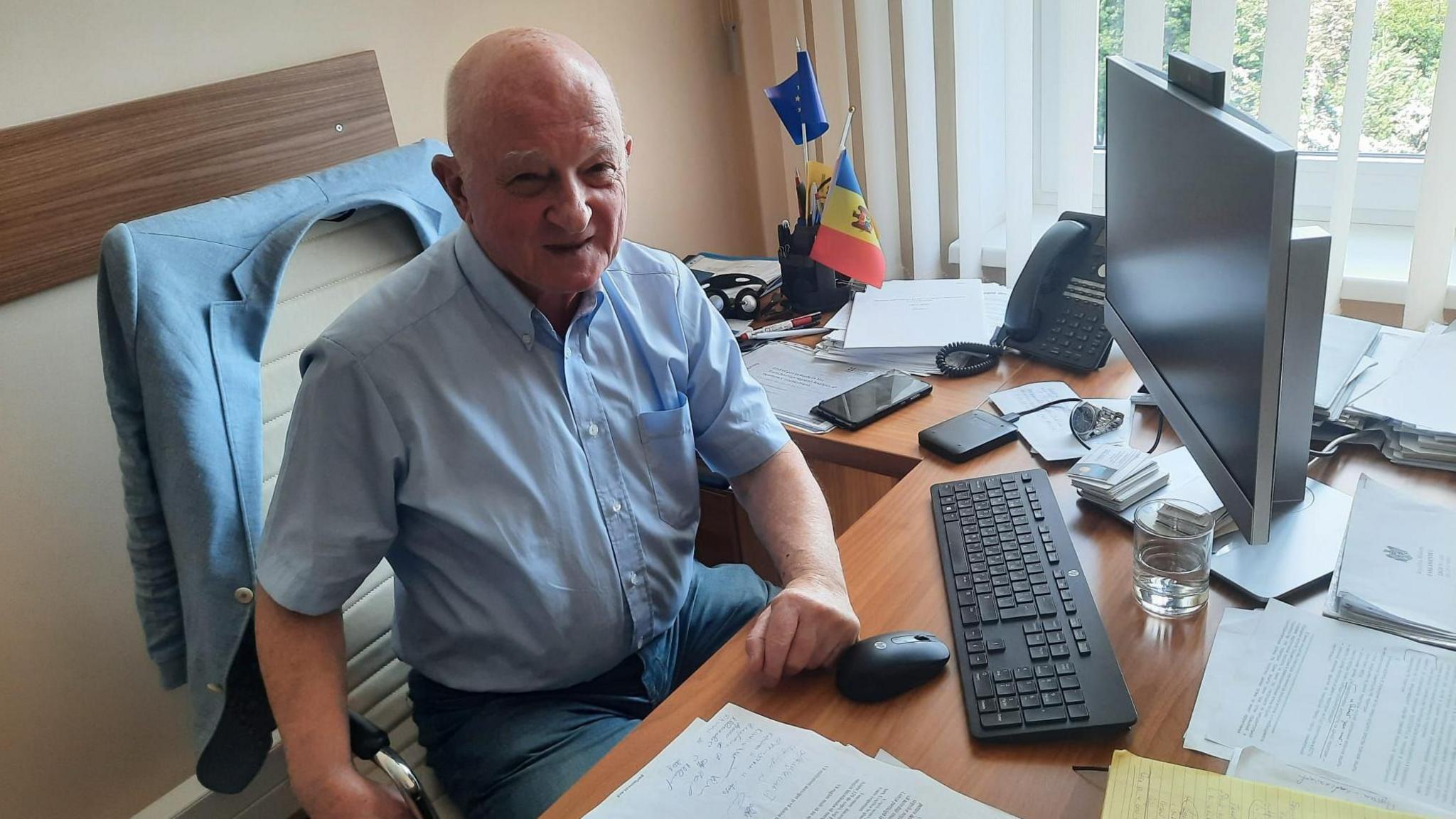
Oazu Nantoi says stopping Russia's war is the best way of ensuring Moldova's security
Before it joins the EU, Moldova will have to sign up to broad democratic and judicial guarantees, and Valeriu Renita, an opposition journalist from pro-Russian party Sansa (The Chance), says Chisinau is failing to do that.
"The government has closed 13 TV networks, 30 websites, judicial reform is going badly - some would say the country is a dictatorship,” he told the BBC.
His party was banned from running in local elections last November, and Mr Renita denies the allegation that Moldova’s opposition is following orders from Moscow.
At the heart of Russia's alleged bid to destabilise Moldova lies one man: fugitive business magnate Ilan Shor who was convicted in absentia five years ago for embezzling $1bn from Moldovan banks.
Shor, who now has Russian as well as Israeli citizenship, now works out of Moscow as informal coordinator of anti-EU and pro-Russia forces in Moldova. Those pro-Russian groups held a congress in Moscow recently and when some of the participants returned to Chisinau, the authorities confiscated more than €1m in cash.
Moldova timeline
1812 Eastern part of Principality of Moldova annexed by Tsarist Russia and renamed Bessarabia
1918 As Tsarist Russia crumbles, Bessarabia becomes part of Kingdom of Romania
1940 After Stalin ultimatum, Romania cedes Bessarabia to USSR. It is then combined with Transnistria to form the Soviet Socialist Republic of Moldavia
1991-92 Moldavia declares independence from the Soviet Union. After a brief civil war, Transnistrian separatists supported by the Soviet army are stationed on the east bank of the River Nistru
Language is the main dividing line here.
Romanian/Moldovan speakers, who represent about 80% of Moldova’s 2.6 million residents, not including Transnistria, are strongly in favour of EU integration.
Ethnic minorities, who include Russians, Ukrainians, Bulgarians and Gagauz, and speak mainly Russian are against.
Moldova's government says many of them have been heavily influenced by Russia's “information war”.
The Gagauz, who are a Turkic Christian ethnic group in an autonomous southern region of Moldova, are led by a pro-Kremlin governor called Evgenia Gutul.
She is a known supporter of Ilan Shor and earlier this year Moldova's EU ambassador Janis Mazeiks complained it was impossible to have a dialogue with her.
Domestically, opinion polls put support for the EU in the 20 October referendum at 55-65%. But factor in the hundreds of thousands of Moldovans who live and work in the European Union, then a Yes-vote seems assured, for the moment at least.
With their votes Maia Sandu could even with outright victory in the first round of the presidential election.
But Russia's influence is ever-present, whether in the war in neighbouring Ukraine or in the fake news that appears on TikTok or Telegram.
So much so that the government in Chisinau fears Moscow may try to foment violence in the run-up to October's referendum.
President Sandu has already been targeted in a deep-fake video while another fake has featured a military camp for Moldovan children.
Galina Vasilieva, who edits Romanian and Russian-language news website NewsMaker, says these are seen by Moldovans who are most susceptible to propaganda.
"In the 2016 presidential elections there was a fake clip claiming Maia Sandu had agreed with EU leaders to accept Syrian refugees. Many believed it, and she lost the election."
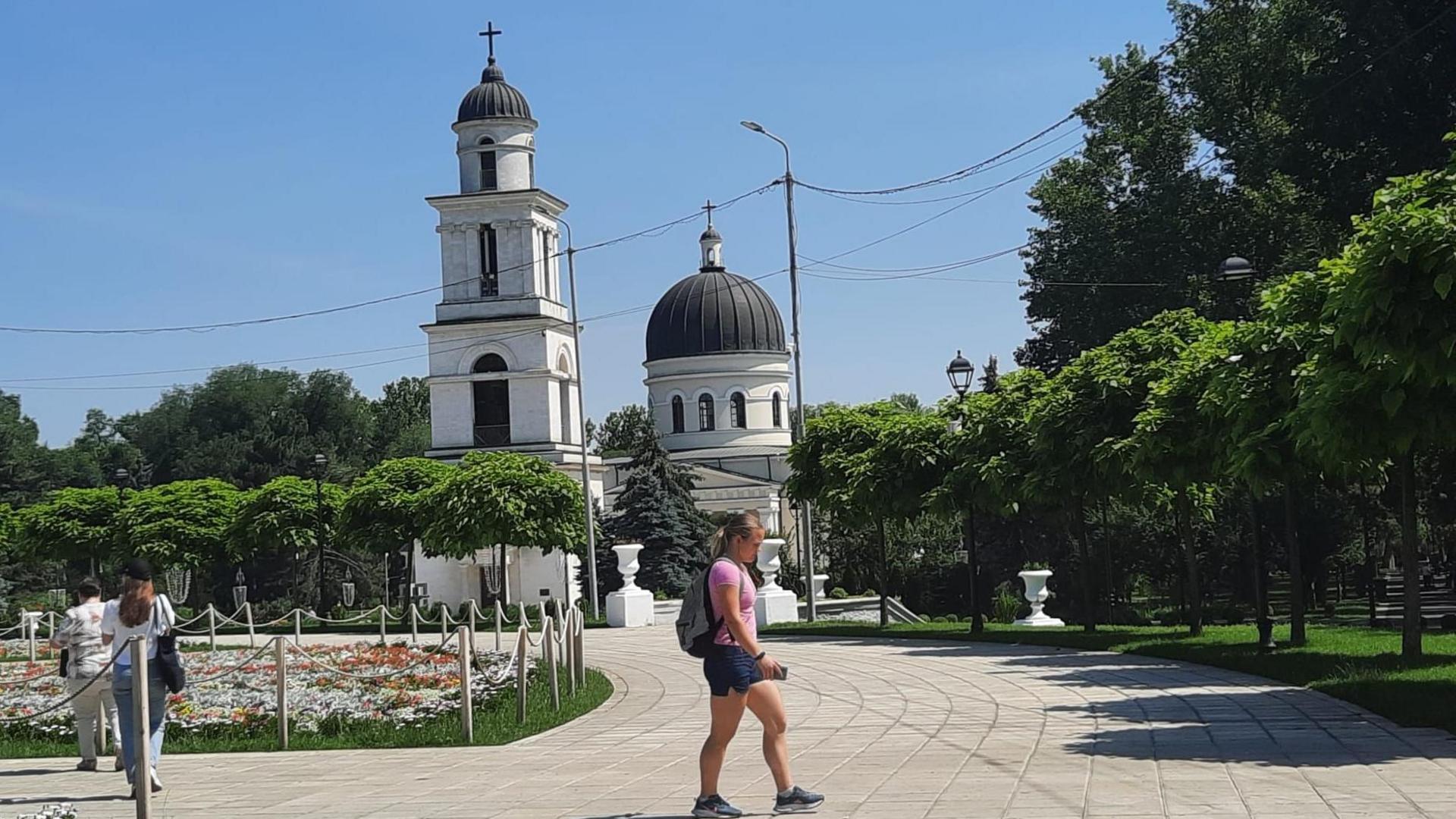
The Metropolitan cathedral in Chisinau